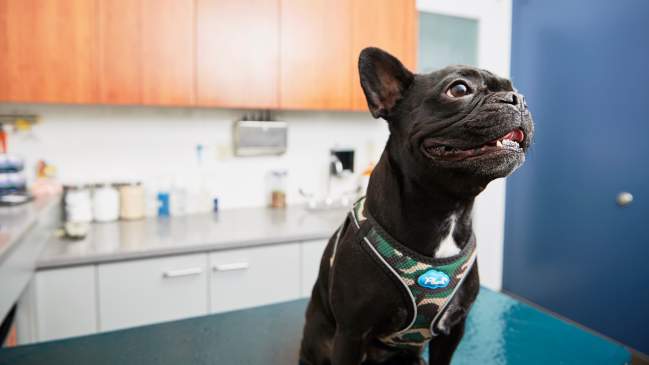Pet ownership is an exciting adventure. But owning a pet comes with certain costs, and many of them often go overlooked until they pop up.
In a 2018 survey of Millennial pet parents, 40 percent of respondents reported that pet care is more expensive than they initially anticipated.
That's why it's important to do your research before bringing your pet home. Here's what to consider.
1. The Up-Front Expenses
Aside from adoption fees or breeder costs, there are many other up-front expenses, according to the American Society for the Prevention of Cruelty to Animals (ASPCA). First things first: Before you bring your new pet home, you’ll need to gather a few basic supplies. For a puppy, you'll want a crate, collar, and leash. For a cat, you'll want a litter box, litter, and scratching post. Investing in a pet bed is another cost; as is getting a kennel for the yard.
On paper, these seem like small expenses, but they add up quick. “Budgeting is one of the most important things when it comes to pet ownership,” says Nikita Singhani, DVM, veterinarian at West Chelsea Veterinary in New York City.
2. The Cost of Quality Food
You can probably find low-cost dog food at your local supermarket, but remember, you often get what you pay for — and low-quality food can pose problems for your pet. Poor nutrition can lead to health issues down the road, according to the American Kennel Club (AKC). And poor manufacturing can lead to contamination, which can make your pet sick. It’s better to plan on investing in a high-quality food for your pet. Dry food is the most cost-efficient, but if you plan to use wet food or dehydrated raw food, the expense goes up.
3. The Cost of Disposable Day-to-Day Items
You also need to think about everyday items — like replacement litter for a cat, or dog waste bags to use for clean up on walks. Like most of us, you’ll probably spend more money on toys and treats for your pet than you ever could have imagined.. Not to mention any extra goodies you splurge on for your pet’s birthday and for the holidays. Spoiling your fur baby is all part of the pet parent territory!
4. The Cost of Health Care

Pets need annual medical exams and ongoing veterinary care. Start by pricing out ongoing care costs, including monthly preventive medications for fleas, ticks, or deworming, as well as vaccinations and boosters that are needed regularly.
Another consideration: The ASPCA recommends that dogs and cats are spayed or neutered within the first year of their life — a procedure that can cost a few hundred dollars.
And don’t forget to plan for illness or injury. “You never know what’s going to happen. You could be lucky and have a pet that just needs to come in for annual check-ups. Or you could have a pet that’s prone to vomiting and diarrhea, allergy issues, or an injury that requires surgery,” says Dr. Singhani. “You need to be able to financially provide if something like that comes up.”
5. The Cost of Pet Health Insurance
To offset the cost of vet care, many opt for pet insurance. Depending on the plan, pet insurance has varying coverage. It could help pay for everything, including routine visits. Or, it might only cover emergency situations. In either case, pet insurance can help take the financial burden off your shoulders.
6. The Cost of Hiring Help
Pets are loyal creatures who are always there for you — but you need to be there for them, too. And sometimes, your schedule can get in the way. Do you work long hours? You may need to send your pup to doggy daycare. Are you willing to trade in happy hour with friends to come home and walk your dog at night? If not, you may need to hire a dog walker when you won’t make it home at a reasonable hour. Can you sacrifice spontaneous weekend getaways for pet-friendly adventures? If not, you’ll need to consider the cost of pet-sitting or boarding when you’re out of town. Are you planning to train your dog basic commands? Obedience school is an option, but it’s another cost to consider. At the end of the day, you have to think of — and plan for — what’s best for your pet’s needs.
7. The Cost of Obligatory Fees
If you rent, you'll likely have to pay a pet deposit, which may or may not be refundable. Depending on where you live, you may also have to pay annual pet licensing fees to the city or county you reside in.
8. The Cost of Liability
Another consideration is the risk of owning a pet. If your dog bites another human or pet, you could be legally liable. Accidents happen, but some areas require pet liability insurance — though that may only be for certain breeds. Check to see if your homeowner's insurance or renter’s insurance policy protects you.
Start Saving to Afford Pet Ownership
The best way to make a happy life for your pet is to save money ahead of time. “If you’re considering bringing home a pet, you need to be in a place where financially you’ll be able to afford things for this pet, as well as any issues that may come up,” says Singhani.
